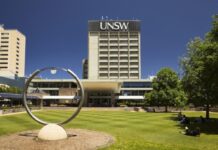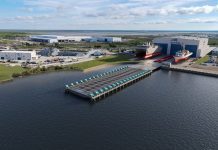
The Australian Academy of Technological Sciences and Engineering (ATSE) has welcomed the Federal Budget’s science and technology measures but called for more strategy and investment to bolster research and innovation reinforced through advanced manufacturing.
The academy emphasised that time is crucial for Australia to develop into a world leader in innovation, rapidly decarbonise the economy, and dominate renewable energy globally.
Kylie Walker, CEO of ATSE described innovation as the “life-blood” of economic, social, health and environmental progress.
According to her, Australia sees an abundance of critical mineral wealth and exceptional leaders in research and innovation, and we have the opportunity to bring these together through advanced manufacturing to lead the world.
She did emphasise, however, that vision, infrastructure, and support are required to achieve these goals, particularly given that Australia has a “timebound opportunity” to put together its abundant natural assets to maximise renewable energy advantage.
“The figures released in April have shown a continued decline in research and development (R&D) spending with total government spending on R&D reaching a low of 0.49%,” said Walker.
She added, “The Australian Research Council and the Universities Accord Reviews have shown that Australian research is in crisis and our potential to lead the world in renewable energy is being left largely untapped.”
In the budget for the next year, the ATSE CEO hopes to see a commitment to lifting research funding to levels that are internationally competitive.
Nonetheless, ATSE recognises the establishment of the new $392.4 million Industry Growth Fund, which will serve as an important partner fund with the Australian Economic Accelerator.
The academy stated that this will continue to foster a favourable commercialisation environment, allowing more of Australia’s world-class research to become world-class technologies.
“ATSE welcomes key climate change announcements in the budget such as the National Net Zero Authority and Transport and Infrastructure Net Zero Roadmap.” Walker noted.
However, if Australia is to reach its current climate goals, economic decarbonisation must be accelerated, according to Walker.
The Academy has also expressed its disappointment with the Global Science and Technology Diplomacy Fund’s $25 million cut.
“Research is a cooperative endeavour and Australia needs to take a leading role in working with its regional partners on global problems. While other nations are increasing investment in international research collaboration, Australia’s leadership is more important than ever,” the academy stated.
Apart from the given measures, the academy also welcomes other measures announced in the budget namely: $1 billion for the Clean Energy Finance Corporation for energy-efficient home upgrades, $36.7 million over four years to develop further energy efficiency initiatives, $2 billion for the new Hydrogen Headstart program as well as $2 million over two years to support Aboriginal and Torres Strait Islander communities to engage with hydrogen project planning.
The academy also applauded the $18.1 million for reforms and auditing from the Independent Review of Carbon Credits, $28 million over two years to develop Australia’s first National Climate Risk Assessment and a National Adaptation Plan, and the $114.1 million over four years to deliver the Nature Positive Plan, including environmental protection, legislative reforms and developing the Nature Repair Market.
In the technology segment, ATSE welcomes the $101 million for critical technology industries including $20 million over four years to establish an Australian Centre for Quantum Growth and $40 million to incentivise business uptake.



















